Akufo-Addo wins the Ghanaian elections
On Wednesday, December 7, 2016, Ghana held its general elections, in which voters chose who would be the next president from among seven possible candidates, including the two main contenders: incumbent John Mahama of the National Democratic Congress and Nana Akufo-Addo of the opposition New Patriotic Party. The two candidates faced off in the last election in 2012, but this time Akufo-Addo emerged as the winner, garnering a majority of the vote according to provisional results announced by two prominent local radio stations. As of the afternoon of Friday, December 9, Joy FM estimated Akufo-Addo would win 53.27 percent of the vote while Citi FM gave Akufo-Addo 54.97 percent. The Electoral Commission anticipated that it will release the official results by the end of the day on Friday, but at 4:00pm EST on Friday President Mahama conceded defeat to Akufo-Addo.
Turnout was recorded at 49 percent according to GhanaWeb, and voting day proceedings were carried out smoothly. During the vote tallying, however, cyberattacks temporarily disabled the official election website. In addition, fake news of early election results was circulating on social media, prompting the Electoral Commission to discredit these stories and ask for patience while the official vote counting was taking place.
Economic issues—including growing public debt, high inflation, slowing GDP growth, and a weak currency in recent years, all due in large part to low commodity prices—are thought to have contributed to mounting public frustration, turning the tide in favor of the opposition. A World Bank report highlighted earlier this year that creating more high-productivity and better quality jobs is a major concern in Ghana, particularly among the country’s youth. Both President Mahama and President-elect Akufo-Addo campaigned heavily on job creation, and Akufo-Addo specifically promised to construct 216 factories throughout the country—one in every district—to promote sustainable industrialization and new sources of employment.
AfDB holds 11th annual African Economic Conference as Senegal hosts the 2nd International Forum on Peace and Security in Africa
The 11th annual African Economic Conference kicked off this week under the theme: “Feed Africa: Towards Agro-Allied Industrialization for Inclusive Growth.” The conference was co-organized by the African Development Bank (AfDB), the United Nations Economic Commission for Africa, and the United Nations Development Program (UNDP). In his opening remarks, AfDB President Akinwumi Adesina noted that the agricultural sector, as it contributes over 28 percent of Africa’s GDP, can be the source of accelerated growth, economic diversification, and job creation. UNDP presented a report on gender equality stressing that women’s empowerment is crucial to transforming the continent’s agricultural sector. Several other research papers were presented on topics ranging from food security to climate change.
Simultaneously, the Dakar International Forum on Peace and Security in Africa was held in the Senegalese capital. The theme for the forum was “Africa and its security challenges: perspectives for effective solutions.” The conference was held with support from the African Union as African leaders discussed security-related challenges on the continent. In his opening remarks, Senegalese President Macky Sall stated that African armies are under-equipped in the face of a growing jihadist threat. During the forum, Nigerian President Muhammadu Buhari reassured the international community that the “end of Boko Haram” was in sight. French Defense Minister Jean-Yves Le Drian, who was in attendance, urged the implementation of the peace accord signed between the Malian government, the militias, and the Tuareg.
In other news, last week, the 59th Annual Meeting of the African Studies Association was held in Washington, DC. The meeting brought together academia, government, and civic institutions worldwide to share the latest research on social sciences, international relations, regional studies, politics, economics, history, and culture. The theme this year was “Imagining Africa at the Center: Bridging Scholarship, Policy, and Representation in African Studies.”
Nigeria plans bond sale as President Buhari prepares 2017 budget
President Buhari is preparing to submit the 2017 government budget to the National Assembly on Wednesday, December 14. It is expected to exceed the record 2016 budget of 6.06 trillion naira by over 1 trillion naira, amounting to 7.28 trillion naira ($23.65 billion). Nigeria struggled to fund the 2016 budget due to a confluence of factors, including low commodity prices and attacks on oil infrastructure in the Niger Delta, which curtailed oil production and government revenues.
Now, to help contend with fiscal pressures and the country’s first recession in 25 years, the government is on the verge of launching its first international bond since 2013 after recent discussions with financial institutions Standard Chartered, Citi, and the Nigerian Stanbic IBTC. The $1 billion Eurobond sale is projected to occur in the first quarter of 2017, and would be a part of funding for the 2016 budget according to Finance Minister Kemi Adeosun.
The Brookings Institution is committed to quality, independence, and impact.
We are supported by a diverse array of funders. In line with our values and policies, each Brookings publication represents the sole views of its author(s).
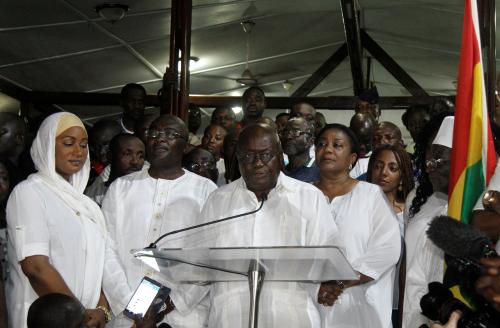
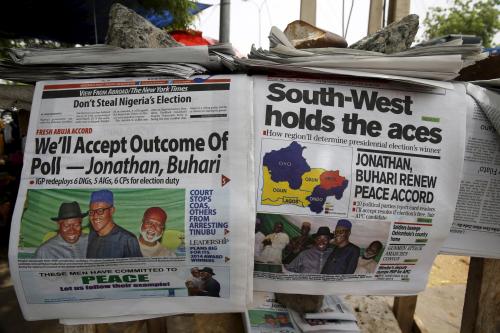
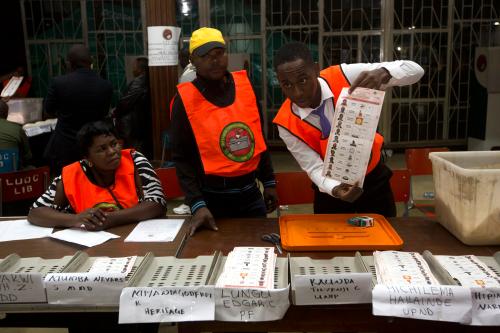


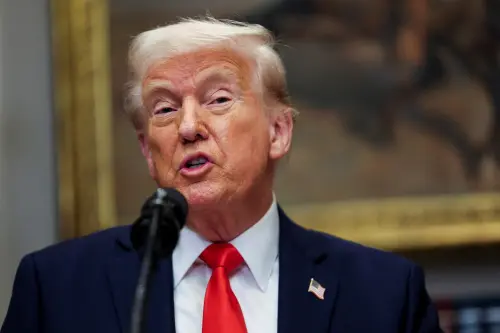
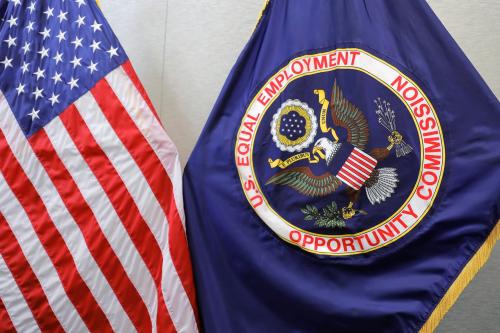
Commentary
Africa in the news: Ghana votes, international conferences highlight African agriculture, security, and research, and Nigeria plans 2017 budget and Eurobond sale
December 9, 2016